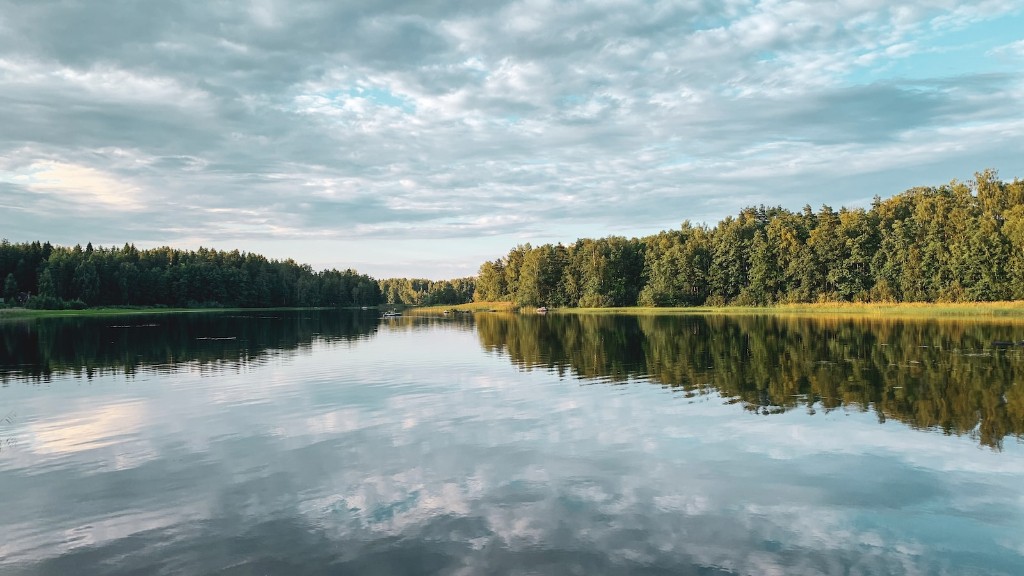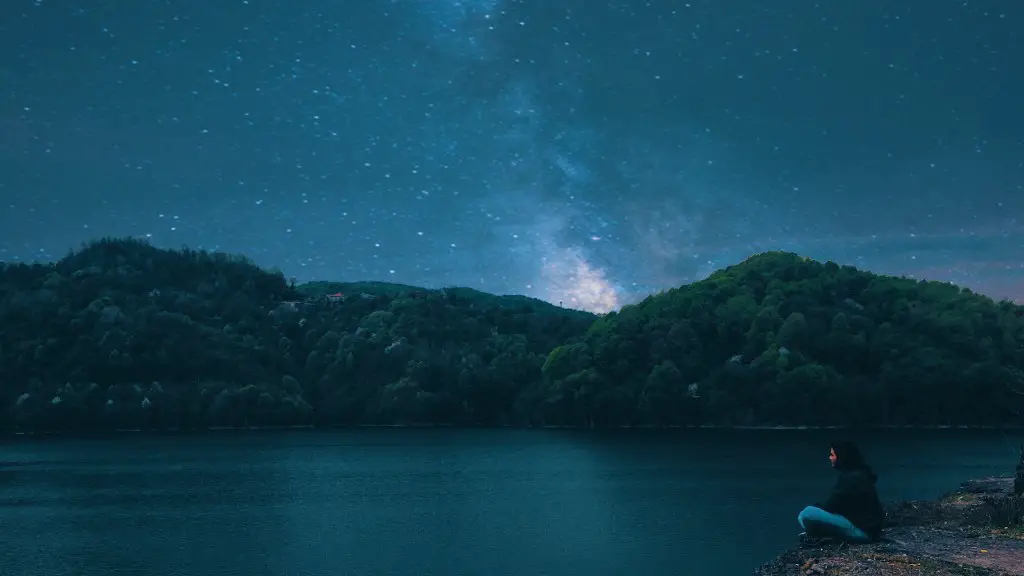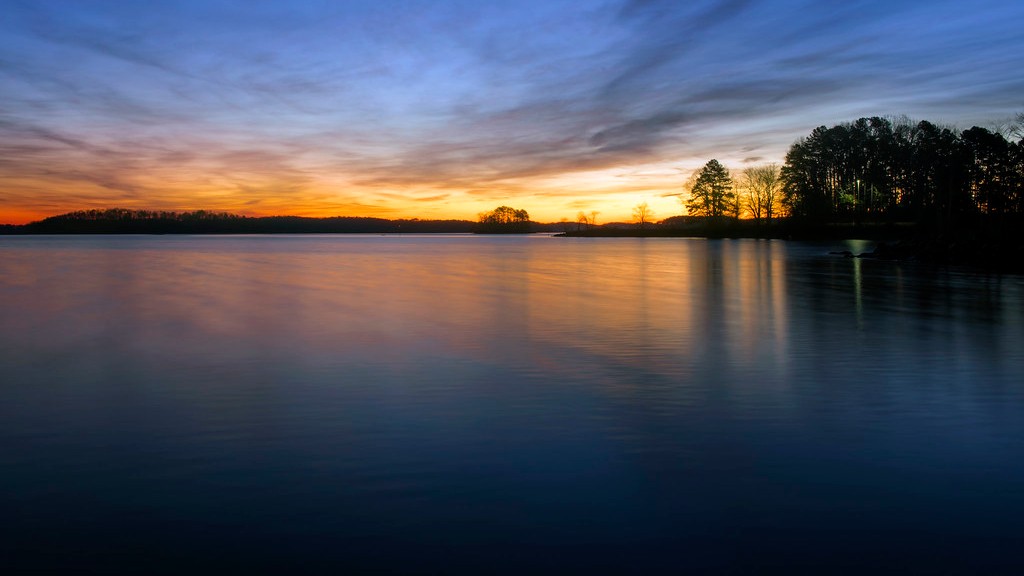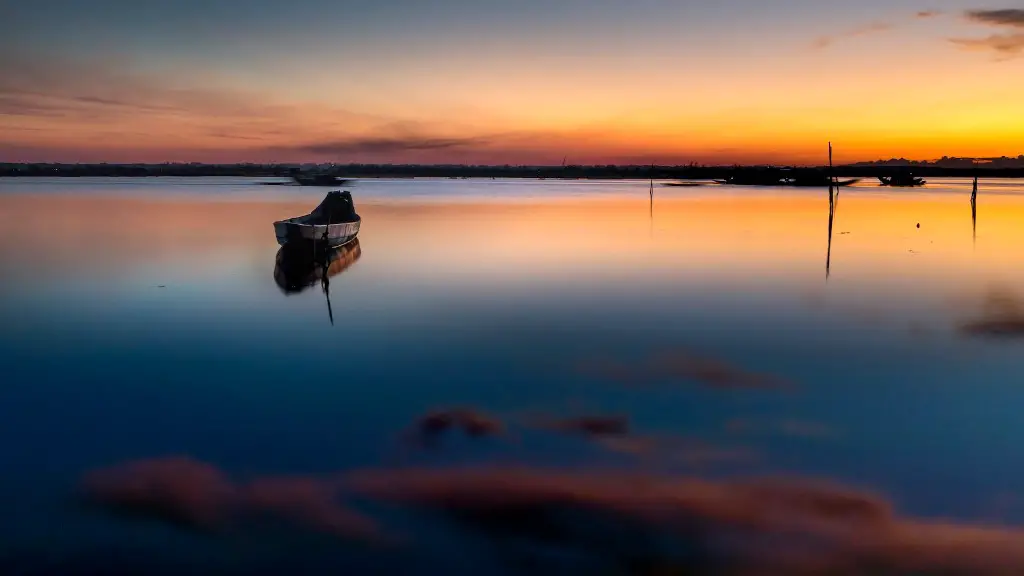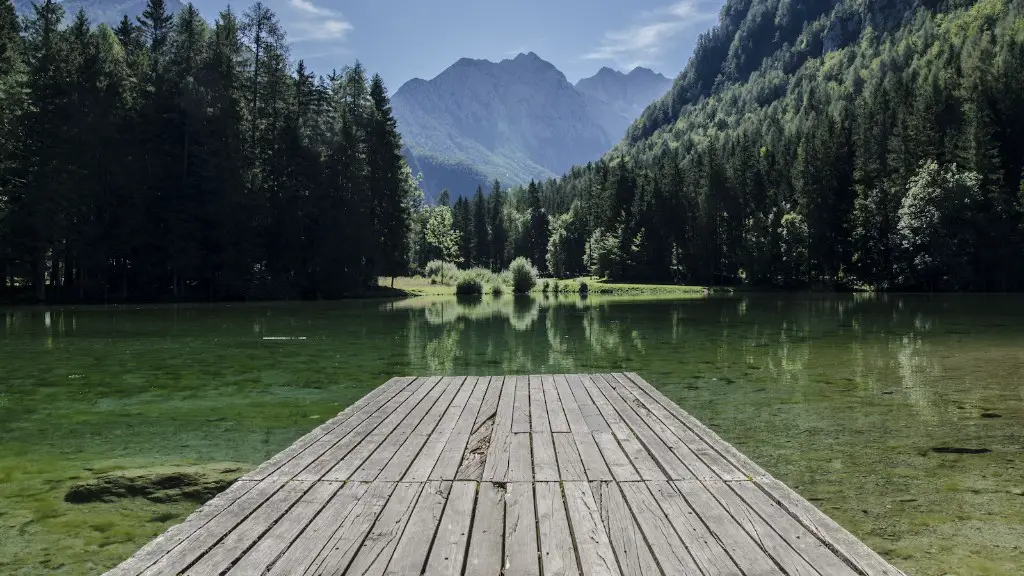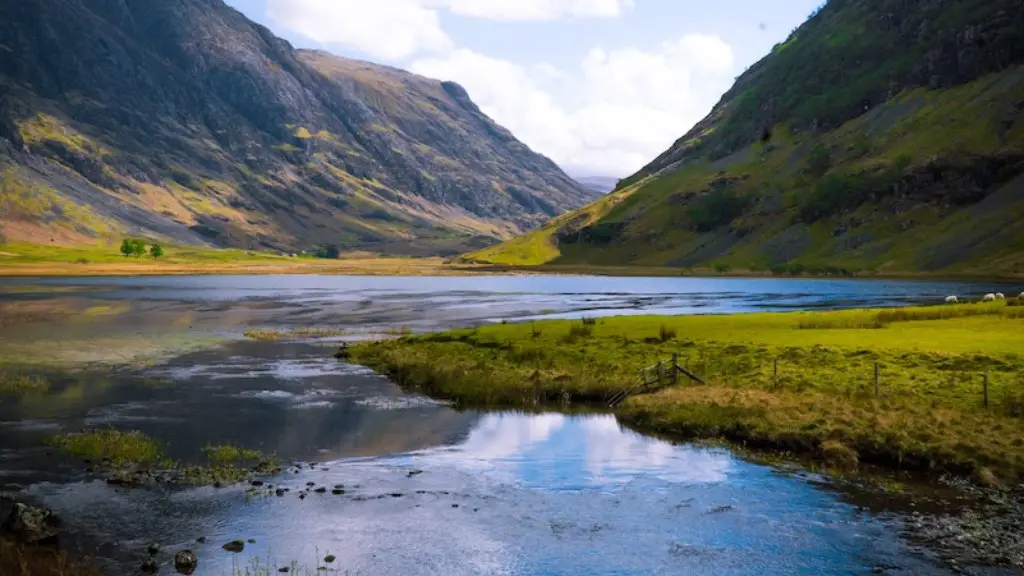Located in Siberia, Russia, Lake Baikal is the deepest and oldest lake in the world, containing around 20% of the world’s total fresh water. Its unique ecosystem and water quality have been put under threat by unchecked environmental degradation and unregulated human-led activities in the region. In order to protect this natural treasure, global and local organisations have taken bold steps towards improving environmental practices and laws in the area.
Lake Baikal is renowned for its unique biosphere and abundance in organisms. The lake contains a wide range of species that are found nowhere else on this planet, with estimates of up to 3,500 species of flora, fauna and microorganisms. It has the most expansive lakebed in the world, with the greatest depth of 1,642 meters and a maximum width of 744 kilometers. This makes Lake Baikal a favorite amongst adventurers and tourists alike.
Environmental degradation problems in the area have been put down to several human-led activities. The local industry of papermaking in the region have caused pollution from untreated wastewater disposal. This has caused turbidity, chemical pollution and the reduction of oxygen levels in the lake, affecting ecosystems and the species within. Unchecked illegal fishing and poaching has threatened the fish species and made them harder to detect due to the lack of law enforcement.
In response to this, global conservation and research organisations have developed joint strategies and agreements between the Russian government and local people. The first and most prominent of such policies was the ‘Baikal Commission’, which was established in 1992 to reduce the anthropogenic pressure on the lake and its surroundings. This initiative was the first of many to improve the area’s ecological layers and further solidify Lake Baikal’s position as a world heritage site.
The International Union for Conservation of Nature (IUCN)has also contributed significantly to the global efforts to save Lake Baikal. The IUCN has created and implemented numerous projects for the protection and maintenance of the lake’s water supply, wildlife and terrestrial habitats, as well as local capacity-building. The IUCN has funded joint campaigns and research activities by other key conservation organisations, such as WWF Russia and World Wide Fund for Nature.
The Russian government have also engineered local management plans for the protection of the lake. These plans include the highly regulated activities in the lake, such as industrial waste disposal, resource extraction, water level and water quality control. Additionally, the local communities living nearby Lake Baikal have been integral to its protection. Through the funding and cooperation of larger organisations, local people have begun projects to reduce overfishing, poaching and pollution in the area.
Overall, it is clear that both local and global organisations have been crucial in the preservation of Lake Baikal. Such initiatives prove the importance of concerted effort in conservation efforts and the effectiveness of getting both small and large organisations involved in the common goal of preserving this natural wonder.
Public Awareness
Organisations around the world have stepped up to spread awareness about Lake Baikal and its environmental issues. Local networks have taken part in collecting signatures and holding events to gain public support for the cause. International networks, such as WWF, have also taken part in raising awareness about the lake through documentary films, e-publications and even merchandise. Such forms of communication have become extremely efficient in the informative nature of people about the issues surrounding Lake Baikal and the importance of its protection.
The goal of such measures is to not only educate the public on the significance of the lake, but also to mobilise efficient responses from governments and authorities. Instances such as this highlight the scope of global conservation activists, who have also pushed for acts and laws that protect the lake, such as the Protection and Preservation of Lake Baikal Act, passed in April of 2020.
Overall, raising awareness of Lake Baikal has been essential in uniting international efforts and allowing Lake Baikal to be recognised worldwide. The mass public education and mobilization of grassroots organisations is a strong indicator of the progress in the fight against the damaging effects of human activities on Lake Baikal.
Water Quality Monitoring and Research
Monitoring, research and analysis are also essential steps in preserving Lake Baikal. Looking at the effects of pollution and resource extraction on the water is a top priority for conservationists. Research has been conducted on a variety of topics, such as water quality, biodiversity, hydrological regime and resources.
Organisations such as The Lake Baikal Foundation have provided financial support to research initiatives in the area, such as the International Council for Exploration of the Seas (ICES). Research agencies have also been leading initiatives for satellite-based monitoring of water levels, chemical composition and temperatures of the lake. This has enabled greater understanding of Lake Baikal’s phenomena and the effects of human activities on the environment.
Research institutes and universities in Russia also play a major role in decreasing the impact of human activities on the lake. For example, the Institute of Water and Environmental Problems (IWEP) has created a vast network of laboratories, observation posts and research stations around the lake.
These studies and observations done by worldwide experts has been essential in producing the current knowledge of Lake Baikal and the protection of its values. It is through these research efforts that have enabled sustainable management of the lake and the development of new protocols for the future.
Sustainable Tourism and Economic Growth
Sustainable tourism has become a key element of preserving Lake Baikal. Tourism to the lake has been closely managed in order to prevent any damage to the environment. Local authorities and organisations use strict sustainable protocols such as garbage disposal, boat and vehicle regulations, and nature-friendly activities.
Tourism also serves as a key factor of economic growth in the area, with around 280,000 tourists visiting the lake every year. This influx of visitors has created plenty of job opportunities for nearby communities, whilst also promoting improved environmental awareness and practices in the region.
Overall, tourism offers a great potential for the preservation of Lake Baikal, guiding visitors and locals to develop an understanding of the area and its stunning natural resources.
Development of Energy Sources
Power generation from renewable sources of energy has become an increasingly important factor in determining the sustainability of Lake Baikal in the future. Renewable energy sources, such as wind and solar, generate energy without putting a strain on resources, whilst also helping to reduce the amount of emissions released into the atmosphere.
The development of renewable energy sources in the lake has been supported by both the government and private companies, with the biggest sponsors being the World Bank and the Asian Development Bank. Both institutions have granted funds to numerous projects related to energy research in the region.
Organisations such as the Baikal Wave Energy Centre are also dedicated to the research and development of cleaner energy sources in the region. The Centre works with Russian and global experts, who are looking to develop technologies to enable wind and wave energy to be captured from the lake. Such endeavours could potentially provide a significant portion of the area’s energy supplies, whilst also reducing the environmental strain caused by current energy sources.
Conservation Policies
The World Wide Fund for Nature (WWF) and the International Union for Conservation of Nature (IUCN) have taken a leading role in monitoring and enforcing laws for the protection of Lake Baikal. Over 20 projects have been launched since 2006 in order to improve the national and regional water management and conservation policies in the region.
The WWF-Russia has also been leading research initiatives and development of legal standards in the area, focusing on the current status and the protection of Lake Baikal’s species and environment. These projects have allowed for a better understanding of the problems related to the lake and its surroundings.
Together, the WWF and IUCN, as well as other organisations, have also been pushing for stronger, more expansive legislation and enforcement to better protect the lake and its resources. This has resulted in stricter punishments for those that violate the agreed policies and tighter regulations on resource extraction in the area.
All these efforts have been incredibly successful at preserving the delicate balance of Lake Baikal’s environment and ecosystem, whilst promoting sustainable activities in the surrounding communities.
